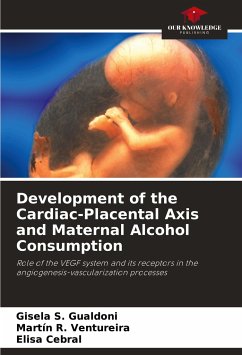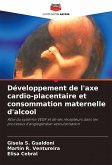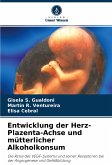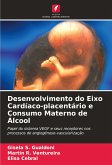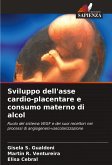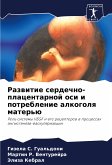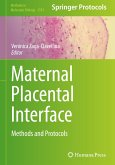Maternal alcohol consumption during pregnancy is one of the main causes of perinatal morbidity and mortality, intrauterine growth retardation, non-genetic mental retardation, and in particular severe heart disease in infants and even adults. The prenatal etiology of congenital heart disease due to maternal alcohol consumption has not yet been elucidated. It has been proposed that the development of the fetal heart is intimately associated with the formation and development of the placenta. Early deficiencies in placental tissues, due to alcohol intake from before gestation and up to organogenesis, would lead to an abnormal placenta with inadequate short- and long-term perfusion, which would be associated with poor development of the fetal cardiovascular system. Our findings suggest that the alteration of the cardiac-placental axis, produced by maternal alcohol consumption in a murine experimental model, generates changes in the angiogenic VEGF-receptor system. These imbalances would be the triggers of the alterations in cardiac development and placental vascularization in early gestation after maternal alcohol intake.

